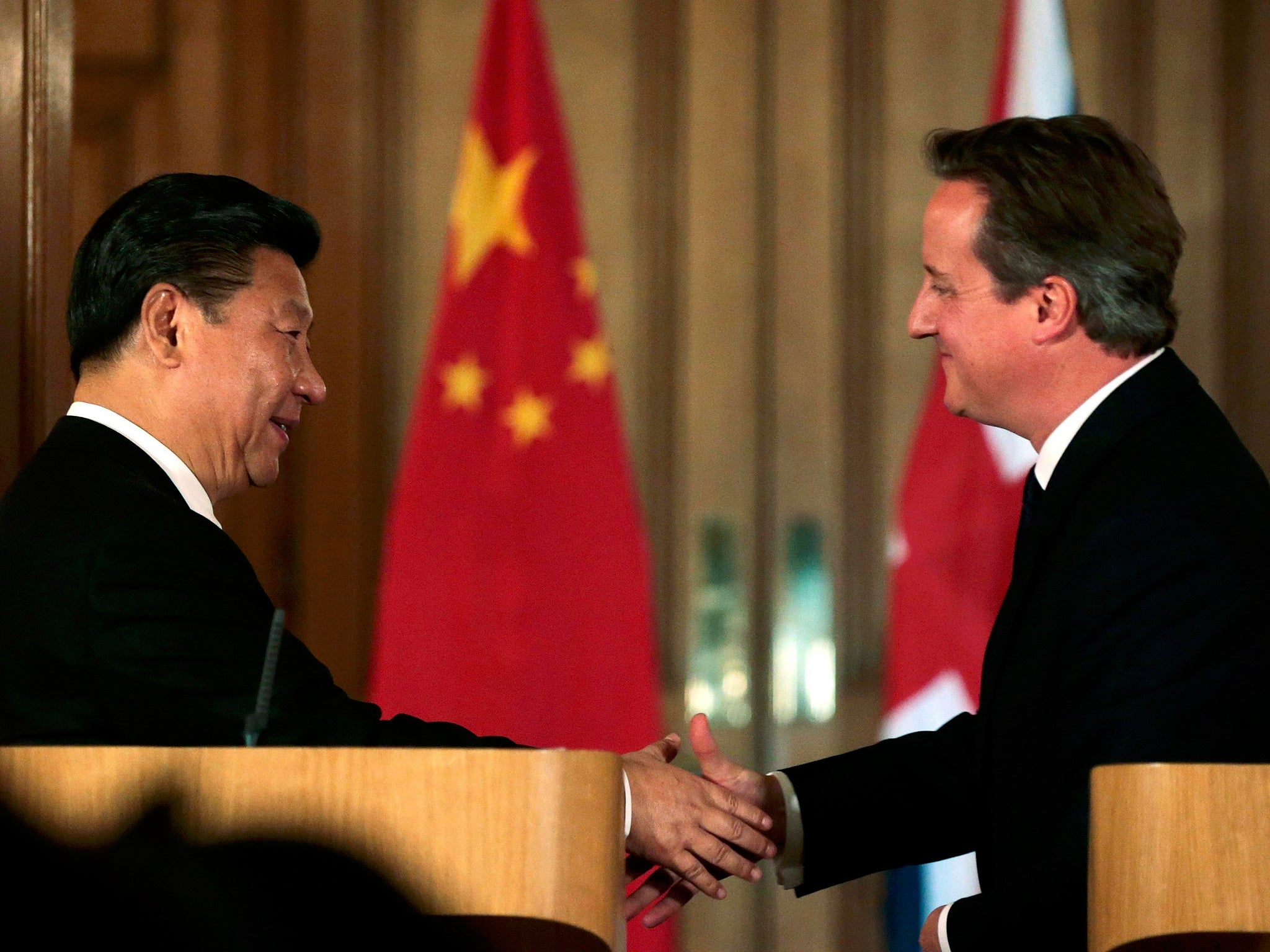It's not just China's state visit that proves how impotent British diplomacy is
As China’s communist leader enjoyed his regal hospitality, the UK Government was also getting cosy with the Ethiopian regime


The visit of Xi Jinping was deemed a success on both sides. Our royal family ensured China’s president was pampered with immense pomp and pageantry, while our political rulers discussed business deals and Britain’s creaking energy system. Human rights were swept under the red carpet, platitudinous speeches were given and protesters were outnumbered by loyalists waving red flags.
Such is the way with modern foreign policy. One former minister told me last week of accompanying a top-level mission to Brazil and observing with astonishment how swiftly talk of geo-politics switched to the selling of British goods. And for all the talk of ethics, don’t think it was any better under Labour; remember not just Tony Blair’s poodle-like behaviour with President George Bush but how he usurped British justice to stop a bribery trial that embarrassed Saudi arms buyers.
Diplomats grumble over the ruthless focus on trade while pushing misguided notions of security, which increasingly means sucking up to autocrats. Next up is Field Marshal Abdul Fattah al-Sisi, Egypt’s former spy chief who seized power in a coup, oversaw a bloody massacre of opponents and then jailed thousands of dissidents and human rights defenders. This fails to stop Britain’s welcome mat from being rolled out. Once again, the visit will show the contortions of a foreign policy that preaches democracy while pandering to despots.
Yet even as China’s communist leader enjoyed his regal hospitality, another event took place that underlined the amorality of this approach. It saw ambassadors, government ministers, trade groups and business people gather in London for a conference to promote trade between Ethiopia and the United Kingdom. The forum was filled with the usual fine words found at such gatherings, including a pledge from foreign office minister Grant Shapps that our country stood “shoulder to shoulder” with the gorgeous east African nation.
The aim of boosting trade with Africa is laudable, although it would be helped if ministers introduced a less hostile visa system and stopped seeing the continent through the prism of aid. Yet while Ethiopia’s economic transformation is impressive, the event served to highlight the myopic nature of our relationship with repressive regimes. For one man unable to join the backslapping was a British citizen from north London called Andargachew Tsige. Instead he was languishing in an Ethiopian prison, where he has been held incommunicado and under sentence of death since being snatched 485 days earlier while passing through an airport in Yemen.
Ethiopia’s rendition of Tsige has received minimal publicity. Yet the “crime” for which this 60-year-old father-of-three is stuck in a grim gulag was to seek democracy in his native land. He founded an opposition group that was branded a terrorist organisation by our east African allies in the so-called war on terror, then was sentenced to death in absentia in a trial that lacked “basic elements of due process” according to US diplomats. Anti-terror laws are used routinely to silence critics in Ethiopia.
Tsige has lived in Britain since 1979, attending university in London after fleeing the Marxist military dictatorship that murdered his brother. He returned after the Derg’s overthrow only to fall out with Meles Zenawi, his old university pal who became prime minister, over the promotion of ethnic-based policies. Yet as he told the British ambassador during a rare prison visit earlier this month, he was one of the government’s friendliest critics who had served them in the past and left on principle.
Alarmingly, he also asked the ambassador to ensure he was buried in England. Yet it is unsurprising if Tsige is having gloomy thoughts during his incarceration. Ethiopia is a one-party state renowned for repression. It has been condemned by Amnesty International for atrocities against opposition groups, while vast numbers of people have been moved in land clearances to enrich the elite; those resisting are raped, murdered and burned from homes. The regime tortures political prisoners, jails journalists and uses food aid to shore up support. In recent widely criticised elections, the ruling party won all 546 parliamentary seats.
Government sources insist they are doing all they can to secure Tsige’s release; foreign secretary Philip Hammond spoke out last week over the Briton’s “unacceptable” treatment. Yet diplomatic cables have shown scepticism over the charges against him - along with initial concerns over the “relatively comfortable” tone adopted in the case. His lawyers at Reprieve point out that Hammond’s statement failed to demand the prisoner’s release.
Hosting a promotional trade fair for a brutal government that kidnapped a British citizen is bad enough. Even worse is the way we keep on pouring huge sums into the pockets of the regime, never using this leverage to secure Tsige’s release. For Ethiopia became the biggest single recipient of our aid despite the intense human rights concerns, handed £1.3bn from hard-pressed taxpayers over the course of the coalition. To the justified fury of his family and friends, this torrent of cash keeps flowing despite Tsige’s seizure.
Sadly, this is not a unique case. Aid kept flowing to Rwanda, another lethally despotic regime, even after Scotland Yard’s warning it had sent a hit squad to kill two dissidents living in London. But the case of Andy Tsige highlights at best the impotence of British diplomacy - and at worst, the ready willingness of our rulers to sacrifice human rights both at home and abroad while playing their power politics.
Join our commenting forum
Join thought-provoking conversations, follow other Independent readers and see their replies
0Comments